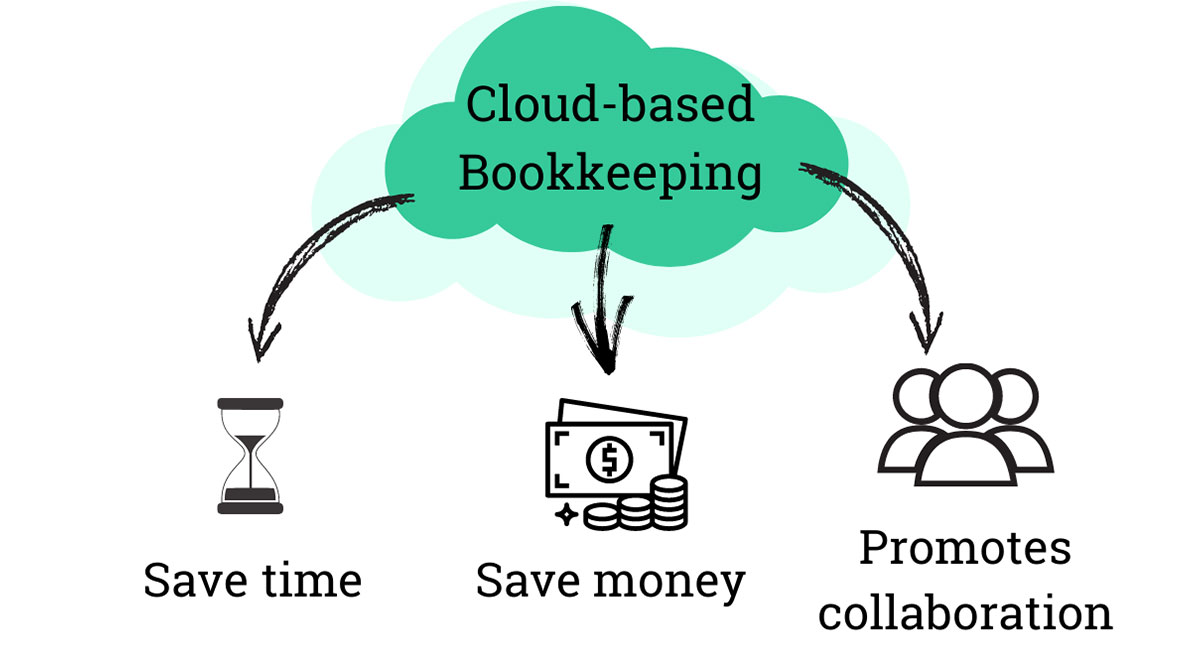
In today’s digital age, businesses of all sizes are increasingly turning to cloud bookkeeping as a solution for managing their financial records. Cloud bookkeeping, which involves using internet-based software to record and manage financial transactions, offers numerous advantages over traditional, manual methods. These benefits make it an attractive option for businesses looking to streamline operations, enhance accuracy, and improve overall financial management.
**1. Accessibility and Flexibility**
One of the most significant advantages of cloud bookkeeping is its accessibility. Unlike traditional bookkeeping systems, which are typically installed on a single computer or a local network, cloud-based solutions can be accessed from anywhere with an internet connection. This flexibility allows business owners and accountants to manage finances from the office, home, or on the go. Multiple users can collaborate in real-time, making it easier for teams to work together, even when they are in different locations.
**2. Enhanced Data Security**
Security is a primary concern for any business dealing with sensitive financial data. Cloud bookkeeping platforms typically offer robust security measures, including data encryption, regular backups, and secure access controls. These features ensure that financial data is protected against unauthorized access, data breaches, and accidental loss. Moreover, because data is stored in the cloud, it is not vulnerable to local disasters, such as fires or floods, that could compromise physical records.
**3. Automation and Efficiency**
Cloud bookkeeping automates many of the time-consuming tasks associated with traditional bookkeeping. For instance, cloud software can automatically import bank transactions, categorize expenses, and generate financial reports. This automation reduces the risk of human error and frees up valuable time for business owners and accountants, allowing them to focus on more strategic tasks. Additionally, cloud bookkeeping platforms often integrate with other business tools, such as invoicing, payroll, and tax software, further streamlining financial management processes.
**4. Real-Time Financial Insights**
With cloud bookkeeping, businesses can access real-time financial data at any time. This instant access to up-to-date information enables better decision-making, as business owners can quickly assess their financial health, track cash flow, and monitor key performance indicators. Real-time insights also make it easier to identify trends, spot potential issues early, and make informed decisions that drive business growth.
**5. Cost-Effective Solution**
Adopting cloud bookkeeping can be a cost-effective choice for businesses. Traditional bookkeeping systems often require significant upfront investment in software licenses, hardware, and ongoing maintenance. In contrast, cloud bookkeeping platforms typically operate on a subscription model, with costs spread out over time. This model often includes regular updates and support, ensuring that businesses always have access to the latest features without additional costs. Moreover, the automation and efficiency provided by cloud bookkeeping can lead to long-term savings by reducing the need for manual data entry and minimizing errors.
**6. Compliance and Reporting**
Keeping up with regulatory changes and ensuring compliance can be challenging, especially for small businesses. Cloud bookkeeping software is often updated to reflect the latest tax laws and regulations, helping businesses stay compliant with minimal effort. Additionally, these platforms simplify the process of generating and submitting reports, whether for internal use or to meet statutory requirements. The ability to generate accurate, detailed financial reports quickly is particularly beneficial during tax season or when seeking funding from investors.
**7. Scalability**
As businesses grow, their financial management needs become more complex. Cloud bookkeeping solutions are scalable, allowing businesses to add new features, users, or integrations as their needs evolve. This scalability ensures that the bookkeeping system can grow with the business, without requiring a complete overhaul or significant additional investment.
**Conclusion**
Cloud bookkeeping offers a range of benefits that make it an ideal choice for modern businesses. From enhanced security and real-time insights to cost savings and scalability, cloud bookkeeping provides a powerful tool for managing finances efficiently. As businesses continue to embrace digital transformation, those that adopt cloud bookkeeping are likely to find themselves better equipped to navigate the challenges and opportunities of the modern financial landscape.

